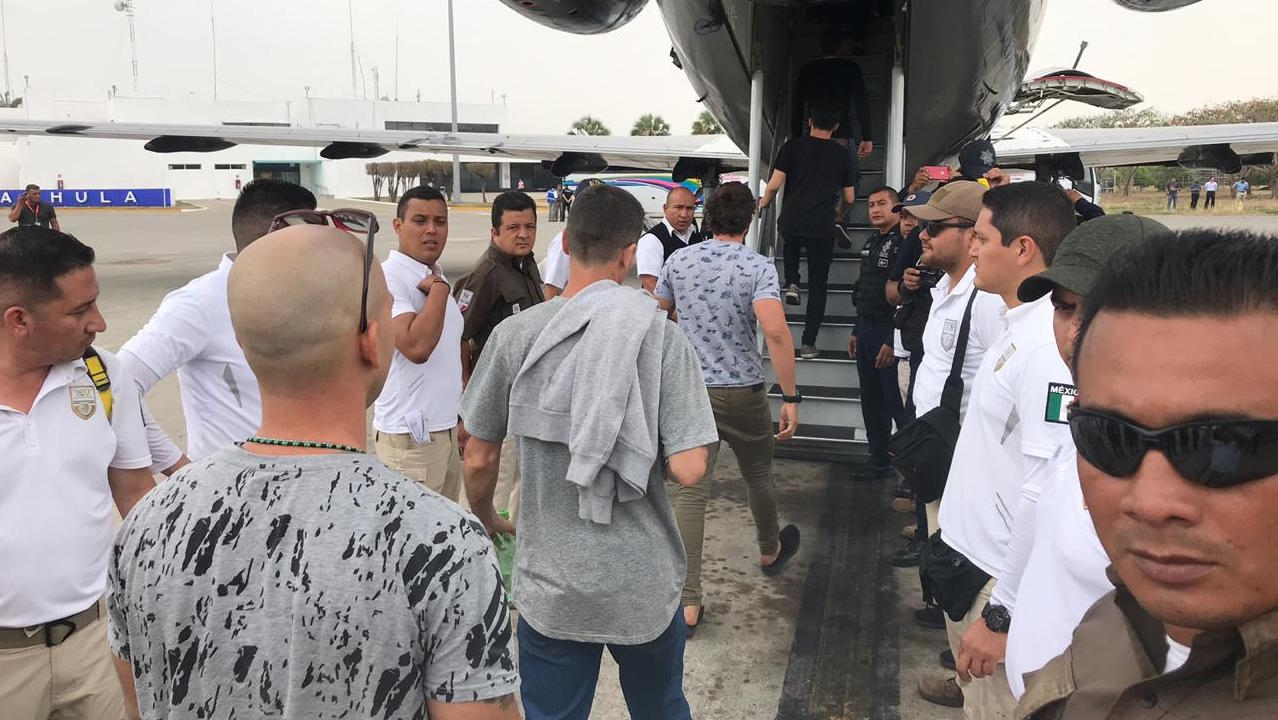Orlando Ezequiel Márquez Montes de Oca and Yosbel O'farrill Carrera are two of the Cuban emigrants that Mexico has deported to the island. For both of them it was the end of an 18-month odyssey that took them to Trinidad & Tobago, and Venezuela, where they faced a set of perils, and saw them cross the Darien jungle.
In Mexico they suffered arrests and robberies at the hands of the Federal Guard. They paid a $200 bribe for protection from the National Migration Institute. However, shortly thereafter members of the Federal Police attacked them and destroyed their documents, they told DIARIO DE CUBA.
They reported the incident, but in vain. In the early hours of May 25, 2019 they were returned to Cuba.
"An INM official told us that we had become a hot potato for the Federal Police because of our complaints, since they had a license plate number and an exact description of the police officers," explained Yosbel O'farrill Carrera.
Now they have been on the island for eight months, dogged by State Security and the Cuban Police.
Yosbel was not able to retrieve his ID and rationing book until two months ago.
"It cost me 100 dollars. If the situation is difficult today, you can imagine what it was like living without being able to certify being a national of the country you were born in," he says.
"Today I have a right to the quotas in the [rationing] book, but the authorities have it in for me. They won't give me work anywhere, and the Police breathe down my the neck as if I were a criminal. My only crime is disagreeing with the regime," he says.
His plan is to "process the passport again, seek help from relatives abroad, and sell whatever I can", to leave the island again. "Another option is los garroteros," he says.
"They are lenders that give you money, at high interest, but with collateral, either abroad or in Cuba," he explains. "There are families that have totally run out of money along the way, and their parents have put up their houses Cuba, and many have lost them. I don't want to go into that any further."
Although the situation has become increasingly difficult for Cubans trying to reach the United States across the border with Mexico, Yosbel believes he has no other choice.
"If life for everyday Cubans is difficult, you can imagine what it’s like for a returnee. Despite the dangers and xenophobia, there is at least the hope of emigrating. Everything here is darkness for me."
"There is no future for me or my family in Cuba"
In October 2019 Orlando Ezequiel Márquez Montes de Oca told DIARIO DE CUBA about his first experiences as a returnee lacking papers in his own country.
Now he has a passport again. Like Yosbel, he wants to keep seeking a future elsewhere.
"Since May 25, 2019 my life has been an ordeal. I have no rights. A returnee is watched every time he leaves his home," he laments.
"On December 9, the day before International Human Rights Day, the police came to my house in the morning to tell me that I could not go out for the next 48 hours," he says. "Then I found out and it wasn't just me, but everyone who the regime considers an opponent."
Despite being returned against his will, like Yosbel, Orlando had to complete the repatriation process, and pay 100 dollars for it. "But between the documents and administrative expenses, it's about 200 dollars."
"There is no future for me or my family in Cuba. I have resolved to seek what I most yearn for: freedom in another country, to be able to offer my two teenage children other opportunities," he says.
"I already have a new passport, and I'm trying to scrape together enough money to leave again. It's an uncertain path, but my future in Cuba is bleaker. The only sure thing I have here is a cell."
